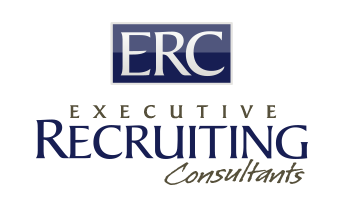Beating Those Re-entry Blues
By ERCJobs In NewsIf you’ve been out of the market for a long time, you may have no idea how to jump back into the candidate pool. It turns out that this might be one of the best times for certain long-term employees to consider making a move.
With a current shortage of people with certain technical skills, someone who has been out of the job market for awhile may have a better chance getting back into their specialty than they would have 5 or 10 years ago. Companies are looking more at skill set than longevity, especially with candidates who have opted to work at “contracted” positions for an extended period of time. In the past this was seen as a negative or job-hopping, but some of these candidates are now being considered due to the skills and experience that they bring to the table.
The best way to get back in to the job market is to learn to market your skills in a way that gets the attention of the company looking to fill a role you are interested in. Candidates who have spent several years at contracted positions end up with very lengthy, cumbersome resumes. I suggest a candidate take the job description posted by a company and write a summary of the skills they bring to the table that match what the company is looking for. The work history can be catalogued in the resume without lengthy summaries. I suggest that individual jobs be listed and summarized in one line to include the company, the role held, and the dates the contract was in effect.
A recruiter can provide a big assist with this, as they can help sell the skill sets of the candidate and assist them in getting around the concerns raised due to the short-term roles a candidate may have filled. My suggestion is to always be honest. Make sure the recruiter can adequately explain why the contracted roles were taken and what was gained from that experience.
The salary question
Salary can become an issue with candidates with contract experience. In order to fill critical roles, most manufacturing companies will pay an hourly rate for contracted employees that is outside their normal salary range. But they also save the expenses associated with benefits, payroll taxes, and other costs. When seeking to hire full-time employees, employers will view those who were previously contract workers as they view their current employees, and the salary ranges, while fair for their industry, will reflect that. Many times a contracted employee may feel they are worth more than an employer is offering due to what they have been making on contract. As they attempt to secure full-time employment, they need to ask themselves if they are able to live with a salary that may not equate to the hourly rate they most recently received.
Time factors
If a candidate has not been employed in their field for two years or more, they will need to be able to discuss what they have done, are doing, or did in the past to ensure their skills are still current. They also need to consider how much more they intend to invest in a career, as companies are really hoping to secure employees for at least five years. So, if the plan is to secure an engineering position for two years to carry them to the point where they have full eligibility for Medicare and Social Security, they may not be a strong contender. The prospective employee may see this as age discrimination, but employers view each hire as an investment. A two-year return on their investment may not work for companies who are specialized or have a hard time securing employees with a specific skill set.
One critical point that is often downplayed or overlooked is chemistry. How well does this employee fit with our current company culture and are they likable? People have a tendency to hire people they like, and they will often look past gaps in employment and experience to hire someone who seems to fit the culture.
In summary, candidates need to consider several things when re-entering the job market:
- Consider securing the partnership of a reputable recruiter to assist you in your job search.
- For each job you apply for, design a resume that markets the skills you bring to the table that match what the employer is looking for.
- Research salary ranges for the position you are applying for so you are prepared to make an informed decision about what is offered.
- Be sure you are ready to discuss commitment and what your intentions are for the long haul.
- During interviews, remain focused on the experience you have that is most relevant to the qualities they are looking for. Make sure the conversation does not stray to all the things that you have done.
- Research the company with which you are interviewing so they can see the level of interest that you have in them.
- Be likable.
Steve Green
Account Executive
Manufacturing/Engineering, Midwest
605-369-2105
[email protected]


